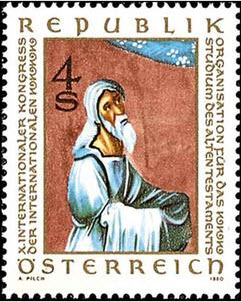Another review of T. Seland (ed.), Reading Philo, is available in Journal of the Evangelical Theological Society 59/1 (2016) 202-204; it is written by Kenneth Schenk.
Quite positive here too; its conclusion runs thus:
“On the whole, this handbook by Seland and these other authors is a great success. It is clearly written and effectively introduces a reader to the person and writings of this important Jewish figure from the time of Christ. The book is of great potential as a resource for evangelical scholars, and it will surely become a standard text for graduate seminars for years to come.”


